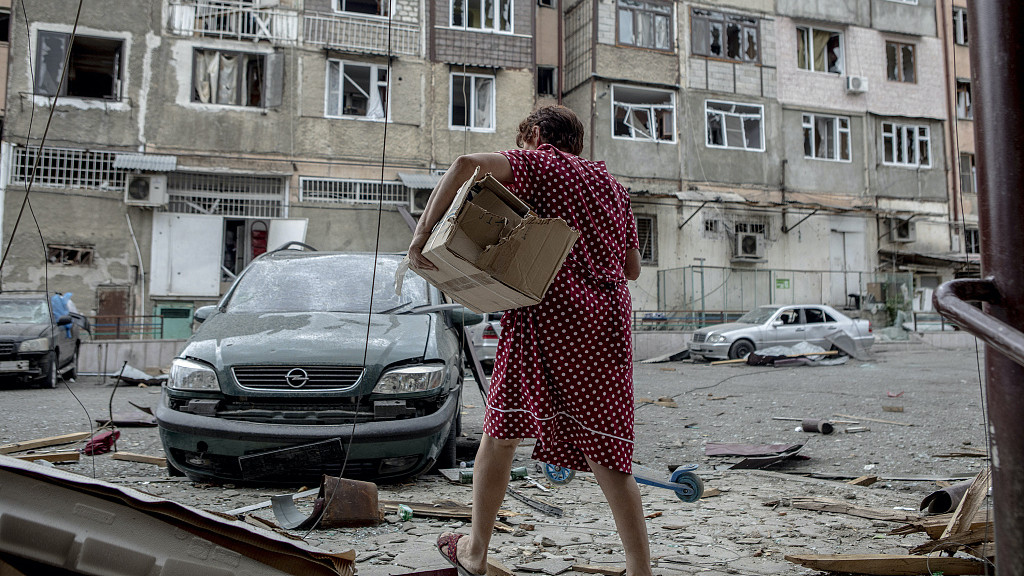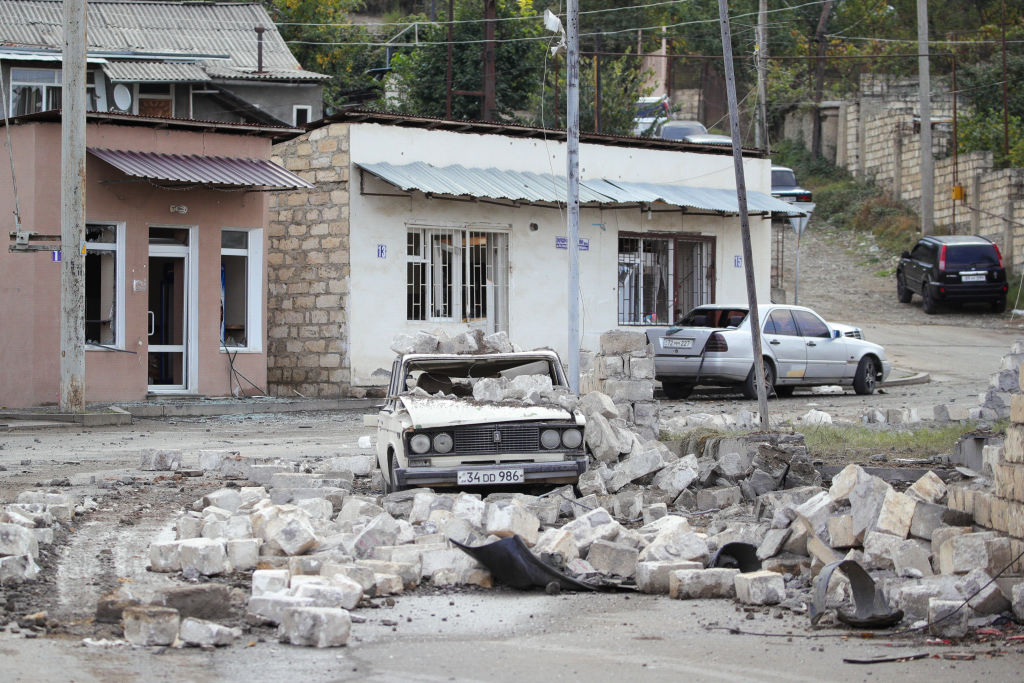
Editor's Note: Seymur Mammadov is the director of the international expert club EurAsiaAz and editor-in-chief of Azerbaijan news agency Vzglyad.az. The article reflects the author's opinions, and not necessarily the views of CGTN.
Fierce fighting in Nagorno-Karabakh, which began on September 27, is still continuing and it does not seem that the conflicting parties are going to end the war and sit down at the negotiating table. At least, Baku does not intend to stop hostilities until the implementation of the four UN Security Council resolutions on the Karabakh issue is ensured. Since Azerbaijan President Ilham Aliyev has set before Armenia the only condition for the settlement of the Nagorno-Karabakh conflict – the Armenian armed forces must be withdrawn from all occupied lands, the territorial integrity of Azerbaijan must be restored and Azerbaijani citizens must return to their native lands.
Baku was extremely dissatisfied with the fact that the status quo around Nagorno-Karabakh has remained unchanged for almost 30 years, that there are no substantive negotiations on the Nagorno-Karabakh issue, that there is no progress in peace negotiations, that the OSCE Minsk Group co-chairs were unable to ensure the implementation of the four UN Security Council resolutions.
In addition, after Prime Minister Nikol Pashinyan came to power, the Armenian side put forward conditions for peace negotiations. One of these conditions, which caused an extremely negative reaction from the authorities, was that "Karabakh should become a full-fledged party to the negotiations."

Vehicles damaged by shellfire in Stepanakert, Nagorno-Karabakh, October 3, 2020. /Getty Images
Vehicles damaged by shellfire in Stepanakert, Nagorno-Karabakh, October 3, 2020. /Getty Images
Besides, the opposition and the people in the past few years have been greatly disappointed by the ineffectiveness of the peace talks and have sharply criticized the OSCE Minsk Group co-chairs for their ineffective work. Each of these factors individually played a role in unleashing the war in Nagorno-Karabakh.
Nevertheless, there is an opinion that the Nagorno-Karabakh conflict may develop into a regional war. Such a scenario of the development of events, in my opinion, is actually unlikely.
First, the hostilities are taking place not on the territory of Armenia, but on the territory of Azerbaijan, which is recognized by all the international community, including the UN. There is not a single country that would consider Nagorno-Karabakh and seven adjacent regions to be the territory of Armenia. Including, by the way, Armenia itself, which has not yet recognized the independence of Nagorno-Karabakh.
Secondly, there was no appeal from Armenia to the Collective Security Treaty Organization (CSTO) secretariat due to the aggravation of the conflict in Nagorno-Karabakh. This organization has no formal grounds for intervening in this conflict, since the hostilities are not conducted in the internationally recognized territories of Armenia, but are conducted exclusively in the territory of Azerbaijan. Now, if tomorrow, for example, hostilities move to the territory of Armenia, the CSTO will have a formal reason to intervene. It is clear that neither Russia nor the CSTO will be involved in this conflict on the side of Armenia.
Third, Russia has an objectively higher role in the Nagorno-Karabakh conflict settlement process than other mediators – the United States and France. Moscow is interested in the stability in the South Caucasus region, and I doubt it will allow the conflict to escalate into a regional war. Because Russia today is involved in various conflicts in Syria, Lebanon, and is forced to keep the situation in Belarus under its control, where protest actions are continuing.
Fourthly, the war between Armenia and Azerbaijan is not beneficial to Tehran. Iran is home to about 30 million ethnic Azerbaijanis – the largest ethnic group in Iran, and possibly one of the most influential. During the fighting in Nagorno-Karabakh, Iranian Azerbaijanis held protests in support of Azerbaijan and called on the Iranian authorities to support their compatriots. Iran, in turn, expressed its readiness to support the settlement of the Armenian-Azerbaijani conflict through dialogue and within the framework of international law, including taking into account the UN Security Council resolutions.
Thus, the version of a regional war disappears. The only way to resolve the Nagorno-Karabakh conflict is to ensure the implementation of the four UN Security Council resolutions. Until these resolutions are fulfilled, the fighting in Nagorno-Karabakh will be continued.
(If you want to contribute and have specific expertise, contact us at opinions@cgtn.com.)